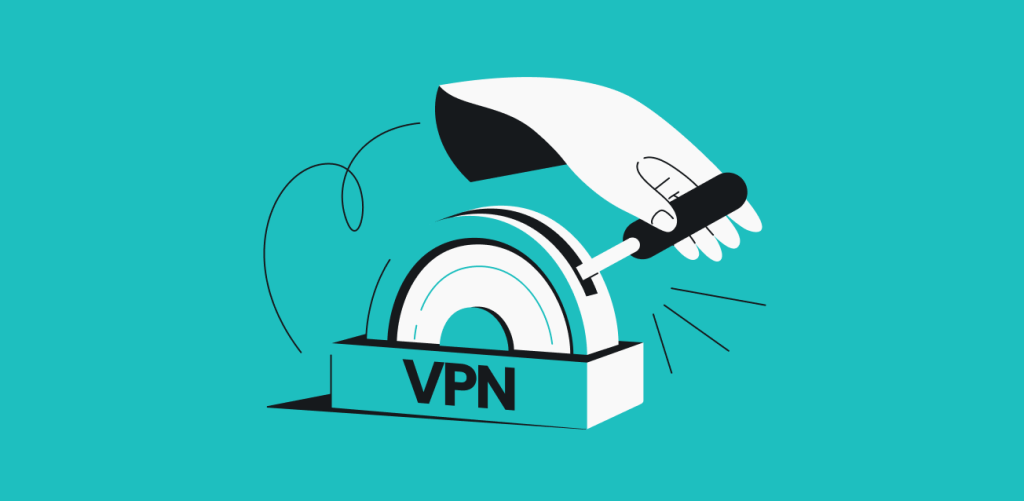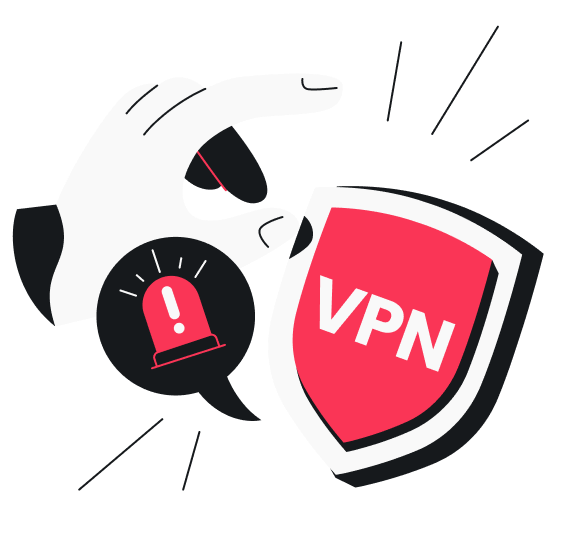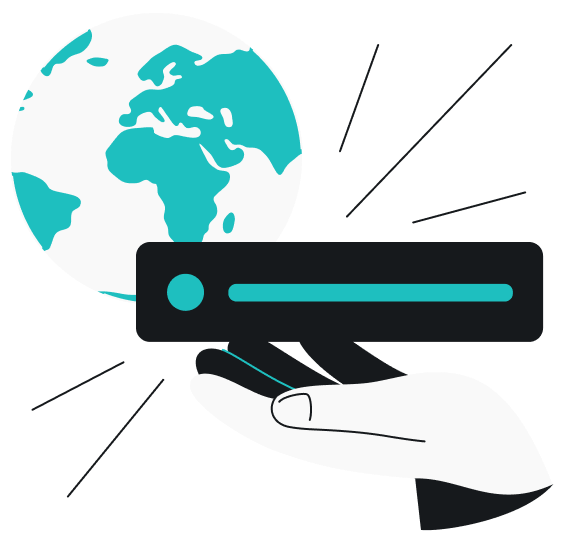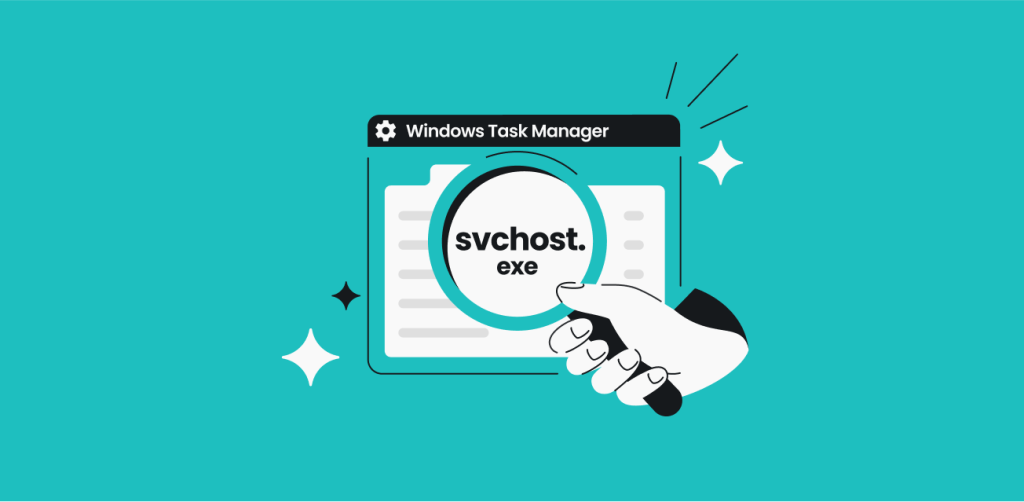If you are wondering how to get a British IP address — your answer is here. In short, you can get an IP (Internet Protocol) address from the United Kingdom using a VPN (Virtual Private Network), a proxy server, or the Tor browser. Let’s see why you may need a UK IP and explore the ways to get one.
Why would you need a UK IP address?
Having a UK IP address lets you access the internet as if you were in the UK. You can watch your favorite British content when traveling abroad. It can help you reach specific sites and British online banking platforms that only allow access from a local IP. It could even improve your online shopping experience. But most importantly, it enhances your privacy and security online.
Here are some benefits of having a UK IP address:
- Accessing your UK-based content when abroad. If you live in the UK and are temporarily overseas, connecting to a UK VPN server will allow you to safely access your subscription content, UK-based services, and websites, just like you would at home.
- Online banking. Due to strict security measures of some British banks, your UK bank accounts might not be accessible with a non-UK IP address. Connecting to a VPN server with a UK IP address might help you access your banking information when traveling.
- Shopping online. Some online shops demand a UK IP address to use their services. This can be frustrating, but it all can be solved with a VPN — connecting to a UK server will provide a smooth and safe experience online.
- Getting better prices. Some websites alter their prices based on location. This means that sometimes, having a UK IP address might provide you with different prices or deals for goods, flights, hotels, car rentals, etc. You can then compare them with your local offers and get the best deal.
- Staying secure and private. A VPN connection masks your actual IP address, so having an IP that appears to come from the UK can enhance your privacy. In addition to all your traffic being encrypted, your real location will be hidden, keeping you safe from snooping third parties.
3 ways to get a British IP
You can get a UK IP address using a VPN, a proxy server, or the Tor browser. However, most proxies don’t encrypt your traffic, while Tor connection is considerably slower and has a bunch of other security concerns. A VPN, on the other hand, is the optimal choice for getting a UK IP address, as it best balances security, speed, and convenience.
While all three options are considered location changers, they change your virtual location (IP address) in different ways. So, let’s take a closer look at each method of getting a UK IP separately and see how they work, when you should use them, and what their downsides are.
Get a VPN
Among the three methods, VPNs stand out for their effectiveness, robust security features, and ease of use. They are arguably the best choice for securely accessing British online services that require a UK IP address.
How VPNs work:
VPNs shield your online privacy by encrypting both your DNS (Domain Name System) queries and internet traffic before rerouting them through secure VPN servers. This encryption is essential because if your DNS queries and IP address don’t match, you may be locked out of some websites and region-specific content or services.
To get a UK IP address, you will need a VPN that has UK servers you can connect to. Thankfully, most modern, reliable VPN providers make it as easy as a single click of a button.
When to use a VPN:
A VPN should be your go-to tool when you need to access content securely and maintain your privacy online. Connecting to a UK VPN server will assign you a UK IP address, safeguard your internet connection, and allow you to browse privately.
The downside of VPNs:
Not all VPNs are the same. Some use outdated, slower protocols, have poor infrastructure resulting in sluggish internet speeds, or have a limited number of servers or server locations (which may not include the UK). Free VPNs often come with even worse drawbacks — they might limit your data usage, compromise your privacy by selling your data, or, even worse — expose your device to malware.
Key takeaway: A trustworthy, paid VPN is seemingly the most optimal way to get a UK IP address. It provides a balance between convenience and online safety, ensuring secure and private access to the internet. However, free VPNs often lack such qualities, so choosing a reliable, high-standard VPN service is essential.
Use a proxy server
A proxy server acts as an intermediary between your device and the internet. It routes your online traffic through the server and assigns that server’s IP address — perfect for getting a UK IP. However, most proxies don’t encrypt your traffic and are unable to provide VPN-level security.
How a proxy server works:
A proxy serves as a gateway between your device and the internet. When you enter a website’s address, your request first goes to the proxy server. The proxy server then forwards this request to the website’s server. Once the web server responds, the proxy server retrieves the data and sends it back to your browser. This way, you can mask your IP address with a British IP.
When using a proxy server helps:
A proxy server is helpful when you simply need to reroute your traffic through an external server and mask your IP address with the proxy server’s IP. It’s a straightforward way to access region-based (e.g., UK) websites, content, and services.
The downside of proxy servers:
Some proxy servers have privacy limitations. While all proxy servers reroute traffic, not all of them offer encryption, leaving your data exposed and vulnerable. Limited bandwidth is a common issue, too. Heavily used proxies host countless users on one server, leading to slower speeds.
A common risk associated with proxies, especially free proxy services, is data logging and selling to third parties.
Final takeaway: You can use a proxy server to obtain a UK IP address, but be aware of potential drawbacks, such as slower speeds, varying levels of privacy protection, and, with some proxies, limited or no encryption.
Browse with Tor
While there are several issues concerning the usage of Tor (see below), it is another viable way to get a British IP.
Tor (The Onion Router) is a free, open-source browser that encrypts and routes your web traffic through multiple volunteer-run servers, known as relays or nodes, located worldwide. This process masks your IP address, providing anonymity — you can change your IP address to a specific country, depending on the exit node you connect to.
How Tor works:
Tor encrypts your data multiple times and sends it through at least three randomly selected Tor relays. Each relay removes a layer of encryption, reveals only the following routing instructions, and then forwards the data to the next node.
The first relay (entry node) knows your real IP, the middle relay knows neither your IP nor your destination and acts as a bridge, while the last relay (exit node) knows the data’s destination.
This three-relay minimum ensures that no single node knows both the data’s origin and destination, keeping your activities and location private. The network periodically rotates these relays, adding some extra privacy. The destination website sees the last node’s IP address instead of yours.
When using Tor helps:
Tor helps maintain online anonymity. Its multi-layered encryption, combined with a relay-based rerouting system, helps mask your identity and location. Tor can also be used to access parts of the web that are unindexed by traditional search engines. However, if you edit settings to choose a specific exit node’s location, it might potentially reduce anonymity and connection speeds.
The downside of Tor:
There are multiple issues concerning the usage of Tor. First of all, the connection speed can be severely affected by the multiple relays, making browsing and streaming very difficult. Additionally, while Tor masks your IP, it doesn’t encrypt your data outside its network, meaning the exit node operators can see your activity.
It’s also worth noting that although the Tor network isn’t illegal itself, it has negative associations — it is often used for secure access to the dark web. Using Tor might be flagged by your ISP (Internet Service Provider) and authorities, while some websites even block traffic coming from its exit nodes. So, use Tor with caution.
Final takeaway: Tor can be used to get a UK IP address by selecting a UK exit node. However, it comes with significant limitations — its slow speeds and limited bandwidth make it unsuitable for streaming or similar activities, and it has negative associations with the dark web.
Get a UK IP address with Surfshark
Here’s how you can get a UK IP address and mask your actual location with Surfshark VPN:
- Subscribe. Pick a subscription plan that suits your needs best and create an account.
- Get the VPN app. Download the Surfshark app, install it on your device, and log in.
- Choose a UK server. Pick one of the UK locations and connect to the VPN server.
- Browse safely with a UK IP. Run the app before you browse, stream, or play and enjoy boosted security online.
Why we recommend using Surfshark for getting a UK IP address:
- With hundreds of servers in 4 UK locations — London, Manchester, Glasgow, and Edinburgh — Surfshark makes getting a UK IP easy;
- You can get a UK IP on all your devices — Surfshark supports all major platforms and allows unlimited simultaneous connections;
- Surfshark’s obfuscated servers allow you to hide the fact that you’re using a VPN at all, further improving your privacy and security online. And, for a small additional fee, you can get a Dedicated IP and have your personal British IP address.
Why should those seeking a UK IP be interested in a dedicated IP:
Some online services closely monitor IP address changes, and frequently changing IP addresses on your account might trigger account blocks. Since VPNs change your IP every time you turn it on (or even every few minutes if the VPN service uses an IP rotator), it can sometimes cause problems.
To prevent accidental account blocks, you can connect to a static server, which gives you a static IP address shared with other users. Or you can opt for Dedicated IP — an exclusive IP address just for you that remains consistent every time you connect to a VPN.
Dedicated IP is especially useful for streaming and gaming. It secures and keeps your connection private while minimizing the risk of getting banned or locked out of your account just because your IP has changed.
Disclaimer: Please note that using Surfshark services for any illegal activities is strictly forbidden and violates our Terms of Service. Make sure that any use of Surfshark services for your particular activities conforms to all relevant laws and regulations, including those of any service providers and websites you access using Surfshark.
Final thoughts on getting a British IP address
Getting a UK IP address is all about finding the right balance between security and convenience. Proxies offer simplicity, but some lack encryption. Tor provides anonymity but is very slow and associated with the dark web. So, regarding security and usability, VPNs stand out as the most reliable option.
To make your decision easier, Surfshark offers a 30-day money-back guarantee, giving you enough time to test our service and see for yourself if Surfshark is the best option for getting a UK IP address.
Frequently Asked Questions
How can I get a UK IP address without a VPN?
Without a VPN, you can get a UK IP address in three ways:
1. Be in the UK and connect to a UK network;
2. Connect to a proxy server located in the UK;
3. Use Tor to connect to a UK location.
How do I get a UK VPN in the US?
Get a UK IP address by connecting from wherever:
1. Download a VPN, install it, and open it.
2. Type United Kingdom in the location bar.
3. Click to connect to a UK server.
4. Start browsing.
How can I get a UK IP address on my phone?
Can I get a UK IP address by changing my DNS server?
A DNS server alone will not change your IP address or grant you a UK IP address. However, changing your DNS server may help when you have a UK IP address and can’t access UK-based websites.
Websites check your IP address and DNS queries when you access websites. The website may block access if there’s a mismatch and the DNS requests come from a different address than your IP. Changing your DNS server may help resolve the issue.
Are VPNs legal in the UK?
VPNs are legal in the UK and most countries. However, some countries restrict/regulate VPN use (e.g., China, Russia, Iran, Iraq, Turkey, Uganda, Oman, and the United Arab Emirates (UAE)) or prohibit it (e.g., Belarus, Turkmenistan, North Korea).
 Ema Pennell
Ema Pennell





